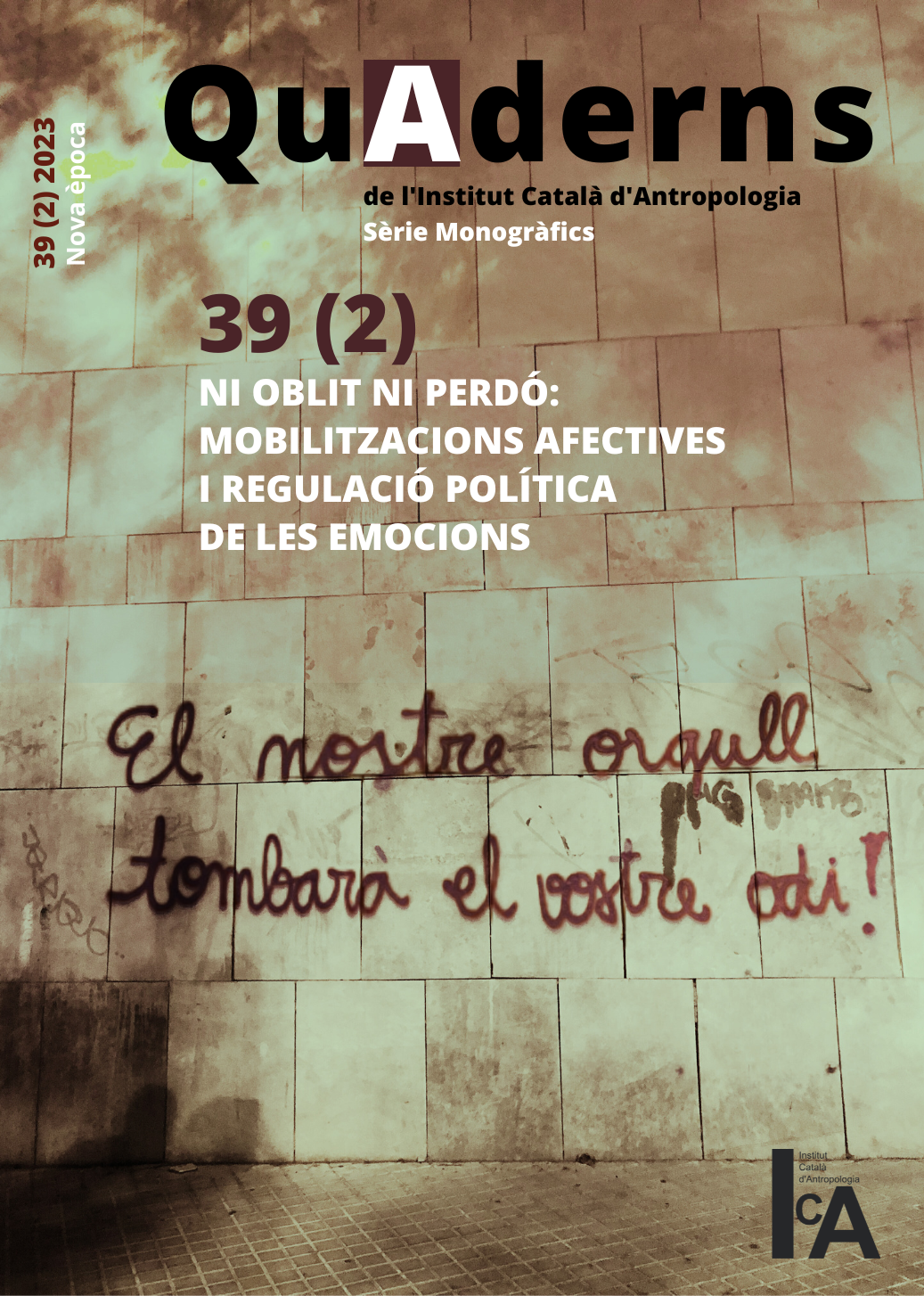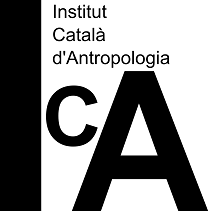Repression, fear, and affective mobilizations in the Catalan pro-independence movement: ethnographic notes on conceptions and strategies regarding fear
DOI:
https://doi.org/10.56247/qua.498Keywords:
independentism, emotion, repression, collective political actionAbstract
The historical period known as Procés, or the Catalan independence process, has been characterized by an extraordinary political activation that has led to the generation of mass mobilizations. In this process, the individual and collective experimentation of emotions and
affections has had a fundamental weight that has not only conditioned political experiences but has created new ones. Ethnographic work has shed light to the idea that the emotion of fear has been widely experiencd by supporters of Catalan independence, both on a latent and unspecific level, as a constant threat, but also in specific and localized episodes temporally and spatially. Far from serving to disactivate political activities, fear has activated individual
and collective strategies, creating new affective networks, which have made it possible to link the political and mobilizing sphere with the emotional one.
Downloads
Global Statistics ℹ️
|
271
Views
|
86
Downloads
|
|
357
Total
|
|
References
Ahmed, S. (2004). The Cultural Politics of Emotion. Edinburgh University Press
Billing, M. (1995). Banal Nationalism. Sage.
Calhoun, Craig (1998). Nationalism. University of Minnesota Press.
Canals, R. (2019). Editorial. El present polític de Catalunya. Una mirada des de l'antropologia. Quaderns-e ICA, Núm. 23 (2), p. 1-6
Clough, P. T., i Halley, J. (eds.) (2007). The affective turn: Theorizing the social. Duke University Press. DOI: https://doi.org/10.2307/j.ctv11316pw
Clough, N. (2012). Emotion at the Center of Radical Politics: On the Affective Structures of Rebellion and Control. Antipode Vol. 44, No. 5, p. 1667-1686 DOI: https://doi.org/10.1111/j.1467-8330.2012.01035.x
Enguix Grau, Begonya (2021). Rebel bodies: feminism as resistance in the Catalan pro-independence left. European Journal of English Studies, 25(2): 225-248. https://doi.org/10.1080/13825577.2021.1944489 DOI: https://doi.org/10.1080/13825577.2021.1944489
Fisher, P. (1970). Tehories of Anxiety. Harper and Row
Goodwin, J., Jasper, J. M. i Polleta, F. (2000). "The Return of the Repressed: The Fall and Rise of Emotions in Social Movement Theory". Mobilization: An International Journal vol. 5 No 1, p. 65-83 DOI: https://doi.org/10.17813/maiq.5.1.74u39102m107g748
Gould, D. B. (2004). "Passionate Political Processes: Bringing Emotions Back into the Study of Social Movements" a: Goodwin, J. i Jasper, J. M. (eds.) Rethin- king Social Movements: Structure, Meaning and Emotion. Rowman & Littlefield.
Heidegger, M. (1962). Being and Time, trans. J. Macquaire and E. Robinson. SCM Press
Jasper, J. M. (1998). "The Emotions of Protest: Affective and Reactive Emotions in and around Social Movements". Sociological Forum No 13, p. 397-424. DOI: https://doi.org/10.1023/A:1022175308081
Kelly, J. R., i Barsade, S. G. (2001). "Mood and Emotions in Small Groups and Work Teams". Organizational Behavior & Human Decision Processes No 86, p. 99-130 DOI: https://doi.org/10.1006/obhd.2001.2974
Poma, A. i Gravant, T. , (2013). "Emociones, protesta y cambio social. Una propuesta de análisis", Revista Latinoamericana de Estudios sobre Cuerpos, Emociones y Sociedad [en línia] 2013, 5 (Desembre-Març)
Rachman, S. (1998). Anxiety. Psychology Press.
Reed, J. P. (2004). "Emotions in Context: Revolutionary Accelerators, Hope, Moral Outrage, and other Emotions in the Making of Nicaragua's Revolution". Theory and Society vol. 33 No 6, p. 653-703 DOI: https://doi.org/10.1023/B:RYSO.0000049194.07641.bb
Downloads
Published
How to Cite
Issue
Section
License
Distributed under the terms of the Creative Commons Attribution 4.0 International Use and Distribution License (CC BY-NC-SA 4.0)




